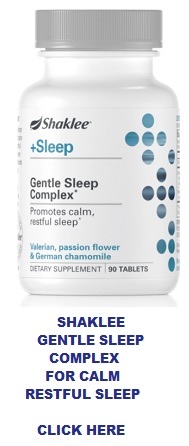 There are going to be many moments and situations in which lifestyle, and environmental, changes are simply not going to be effective at treating or curing insomnia. There are also times when insomnia sufferers, for one reason or another, do not want to try these other types of treatments and cures for sleeplessness.
There are going to be many moments and situations in which lifestyle, and environmental, changes are simply not going to be effective at treating or curing insomnia. There are also times when insomnia sufferers, for one reason or another, do not want to try these other types of treatments and cures for sleeplessness.
Fortunately for those people, there are several effective sleep aids and medications which are available.
If taken correctly, and only as needed for short periods of time, most prescription medications need not cause any problems with addiction. That's good news especially since sleep medications are the most common treatment for insomnia.
Prescription medications to treat insomnia are available as are many over-the counter treatments. To obtain a prescription for a sleep aid, you need to be under the care of a physician. This is an important point, since effective treatment begins with a valid diagnosis, and identification of any existing causes of insomnia.
For example, if insomnia turns out to be a symptom of depression or anxiety, the patient will probably fare better
with a prescription designed to treat depression or anxiety rather than the sleep disorder per se.
When insomnia is identified as purely a sleep issue, however, the most
effective sleep aids for promoting sleep are called hypnotics.
The two main goals of hypnotics are to induce sleep faster and then
maintain it for a longer period, resulting in better quality sleep for the insomniac.
There are half-life
hypnotics and full-life.
Half-life hypnotics are designed to stay in the system only half the amount of the time as full-life so they won't interfere with daytime activities. Hypnotics also vary by dosage. They're most effective when taken for short periods and when their use is decreased over a period of time rather than all at once.
Antihistamines are the most common form of over-the-counter (OTC) sleeping aid.
Although antihistamines are primarily designed to block chemicals that the body releases during an allergic outbreak, they also generally have a calming effect, which makes them effective at encouraging sleep.
However, this is a point of considerable debate among the professionals.
Some over-the-counter (OTC) sleep aids contain pain relievers, and, even if they don't, OTC sleep aids should never be taken with alcohol. Even though they're available without a prescription, it's still advisable to get medical guidance before taking any type of sleep aid.
A melatonin supplement can
be another effective sleep aid that can help in dealing with
insomnia. Melatonin is a naturally-occurring hormone the body produces
as day turns into night. Melatonin helps the body prepare for sleep by
lowering body temperature and triggering other changes inside the body.
As with all sleep aids, you must be careful taking a melatonin supplement because there is always a risk of over-supplementation. In addition, over-the-counter nutritional supplements, such as melatonin, are not subject to the stringent testing and reporting requirements required for prescription medications. For this reason, side effects and long-term effects may not be fully understood.
Some natural healers have long claimed that herbal sleep remedies including
St. John's Wort, valerian root, chamomile and lemon balm are effective
at reducing instances of insomnia, but like nutritional supplements,
there are no regulations requiring the generation of reports and/or
studies to back up these claims or document the benefits or
disadvantages of long-term usage.